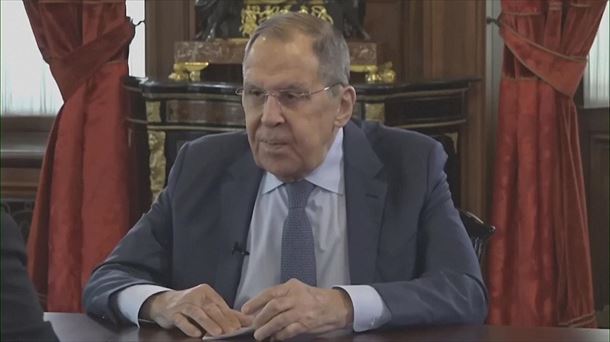Lawyers, dockers, railroad and subway workers, postmen and garbage collectors announce strikes amid Johnson’s replacement election process
The Criminal Lawyers Association has targeted the next UK government for its protests demanding better wages and working conditions. Yesterday he chose the date of the election of, quite possibly, Boris Johnson’s successor as prime minister to step up the strike that his members have supported since late June. The strike will be total, permanent and in principle indefinitely from September 5, when Liz Truss is expected to collect the keys to 10 Downing Street, the official residence and office of Britain’s top executives.
Barring an unexpected turn of events, the Secretary of State will that day defeat her adversary, Rishi Rusnak, and take over the reins of a country embroiled in labor disputes and with a social and media environment of concern in light of the rising costs of livelihood . Employees of the railways and the London Underground, stevedores of the main container unloading port, postal and garbage collectors form picket lines at the entrance of their work in an intense program of action that for the time being raffled the rest of the population without serious disturbance. Other essential groups, from nurses to teachers, are wrapping up their union action programs this fall of discontent.
Truss tweeted days ago that she will not allow “militant union members to take the country hostage.” And, faced with yet another blockade on rail transport in the wave of strikes to protect pensions, jobs and security measures, the favored candidate has threatened to break the legal union restrictions once her Conservative primary victory is confirmed.
The criminal collegiate decided by a majority of 79.54% of the vote to “escalate” the protest’s action. Of the two remaining options, 9.11% preferred to stop the protest and 11.35% supported continuing the current series of interrupted strikes, in alternating weeks, which started in June. It was the first time since 2014 that lawyers in colorful headdresses took to the streets. That year the so-called ‘barristers’ (defending suspects in lawsuits) held their first strike in protest at the low level of the state’s legal costs.
Justice Minister Dominic Raab refuses to meet with the Bar Association. Negotiations broke down weeks ago due to the outgoing government’s rejection of a 15% tariff increase. The lawyers ask at least 25% to be able to compensate, as he states, for the decades-long disinvestment in the public justice system. A court-appointed criminal defense lawyer earns an average of 14,000 euros per year in the first three years after graduation, with an hourly wage below the base 11 euros.
The association criticizes that the suspension of the processes because of the strike costs taxpayers more money than the increase in the rates it asks for its member companies. In the 19 days from uprising to the 5th, 6,235 court proceedings, including 1,415 trials, were interrupted in England and Wales. In some cases, members of the popular jury were fired on the second day of the hearings, other trials did not even begin due to the lack of a legal representative for the defense. “It is an irresponsible decision that will only cause more victims to face delays and fear,” said Secretary of State Sarah Dines, reacting to the lawyers’ hardening position.
Meanwhile, the commercial sector struggled with industrial action in the port of Felixstowe, which moves some four million containers a year. With anchorages for the largest cargo ships, this facility in the South East of England controls 40% of the UK’s overseas trade in driverless containers. The union workforce of nearly 2,000 workers began a strike on Sunday until the 29th that threatens the UK’s commercial supply chain.
The Russell Advisory Group estimates the volume of trade that will be affected by the Felixstowe union action at more than €800 million, with clothing and electronic components among the worst affected sectors.
Source: La Verdad
I am an experienced and passionate journalist with a strong track record in news website reporting. I specialize in technology coverage, breaking stories on the latest developments and trends from around the world. Working for Today Times Live has given me the opportunity to write thought-provoking pieces that have caught the attention of many readers.



